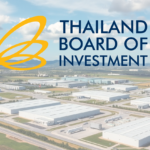Expanding your industrial operations to Thailand requires more than just investment and strategic planning. For foreign businesses setting up factories, understanding and complying with labor law compliance for factories in Thailand is crucial. Thailand’s labor regulations ensure fair and ethical practices in the workplace, benefiting both employers and employees. This guide will walk you through the essential aspects of these laws, including minimum wage standards, working hours, and employee rights. By staying compliant, you can avoid legal complications and create a productive work environment.
Key Thai Labor Laws for Factory Owners
Thailand’s labor laws are primarily governed by several key legislations: the Labour Protection Act B.E. 2541 (1998), the Labour Relations Act B.E. 2518 (1975), the Social Security Act B.E. 2533 (1990), and the Compensation Act B.E. 2537 (1994). These laws set the rules that businesses must follow when hiring, managing, or terminating employees. Here are the most important aspects to consider for labor law compliance in Thailand:
Minimum Wage Requirements
One of the key aspects of labor law compliance for factories in Thailand is understanding minimum wage regulations. As of October 1, 2023, the minimum wage varies by province, ranging from 328 to 354 Thai Baht (THB) per day. Here’s a breakdown:
- 328 THB: Narathiwat, Pattani, Yala, Udon Thani, and Nan.
- 353-354 THB: Bangkok, Nonthaburi, Chonburi, Rayong, Phuket.
Factory owners must regularly review wage rates to ensure compliance, as they are adjusted based on economic conditions like inflation and living costs.
Drafting Employment Contracts
For labor law compliance in Thailand, well-drafted employment contracts are essential. Contracts can be fixed-term or permanent, with written agreements preferred to avoid disputes. Key components include:
- Job Description: Clearly define roles and responsibilities.
- Compensation: Detail salary, bonuses, and benefits.
- Working Hours: Specify standard hours and overtime terms.
- Leave Entitlements: Include sick leave, maternity leave, and public holidays.
- Termination Terms: Outline notice periods and severance pay.
Using generic contract templates can be risky, as they may miss specific legal requirements in Thailand. A tailored approach ensures full compliance.
Working Hours and Overtime Rules
Adhering to working hour regulations is a significant part of labor law compliance for factories in Thailand. Under the Labour Protection Act, employees should not work more than 8 hours a day or 48 hours a week. For hazardous roles, this limit reduces to 7 hours per day and 42 hours per week.
Overtime pay must follow these rates:
- 150% of the hourly wage for regular overtime.
- 200% for overtime on public holidays.
- 300% for overtime on public holidays when it overlaps with standard working hours.
Non-compliance with overtime payment can lead to penalties, making it crucial for factory owners to track working hours accurately.
Employee Benefits and Leave Entitlements
Thailand’s labor laws provide for various employee benefits, which are integral to labor law compliance:
- Sick Leave: Up to 30 days of paid sick leave per year.
- Maternity Leave: 98 days, with 45 days paid.
- Public Holidays: A minimum of 13 paid public holidays annually.
- Annual Leave: At least 6 days of paid vacation for employees with over one year of service.
Employers must also register employees with the Social Security Fund (SSF), which covers healthcare and other benefits, with contributions set at 5% of the employee’s salary from both parties.
Termination and Severance Pay
Termination procedures are strictly regulated in Thailand, making compliance a top priority for factory owners. When terminating without cause, businesses must provide severance pay based on the employee’s length of service:
- 30 days’ wages for employment between 120 days and 1 year.
- 90 days’ wages for 1-3 years of service.
- 400 days’ wages for those employed over 20 years.
Special provisions apply if a business restructuring impacts employees’ living conditions, requiring additional severance pay and a 30-day notice period.
Hiring Foreign Employees
Foreign factory owners must follow the Alien Employment Act when hiring non-Thai nationals. This includes ensuring that foreign employees have a Non-Immigrant ‘B’ Visa and a valid work permit. Certain job categories are reserved exclusively for Thai nationals, making it important to consult the Prohibited Occupations for Foreigners list.
Ensuring compliance with work permits and visa renewals is critical, as violations can result in heavy fines or operational restrictions.
Penalties for Non-Compliance with Thai Labor Laws
Failure to maintain labor law compliance for factories in Thailand can lead to serious penalties:
- Fines: Monetary penalties can range from 20,000 to 100,000 THB.
- Imprisonment: In severe cases, jail terms can extend up to 1 year.
- Reputational Damage: Legal issues can negatively impact your business’s reputation.
Regular audits and staying updated on labor law amendments can help avoid these consequences, ensuring smooth factory operations.
How SparkUp Solutions Can Help
Navigating Thailand’s labor laws can be challenging, especially for foreign businesses. SparkUp Solutions offers expert guidance on labor law compliance for factories in Thailand, assisting with contracts, overtime payments, and employee management. Our team ensures your factory operations are legally sound and efficient. Reach out to SparkUp Solutions today for a seamless factory setup and HR compliance support in Thailand.
Conclusion
Maintaining labor law compliance for factories in Thailand is crucial for a successful industrial operation. By understanding key aspects such as minimum wage, working hours, and employee rights, you ensure a fair and legally compliant environment. For tailored advice and support, contact SparkUp Solutions—your trusted partner for factory setup and labor compliance in Thailand.
Ready to Set Up Your Factory in Thailand?
Let SparkUp Solutions help you make the process easy. Whether it’s zoning laws, BOI promotion, or environmental rules, our team will guide you every step of the way.
Contact us today to schedule a consultation and take the first step toward establishing your factory in Thailand





